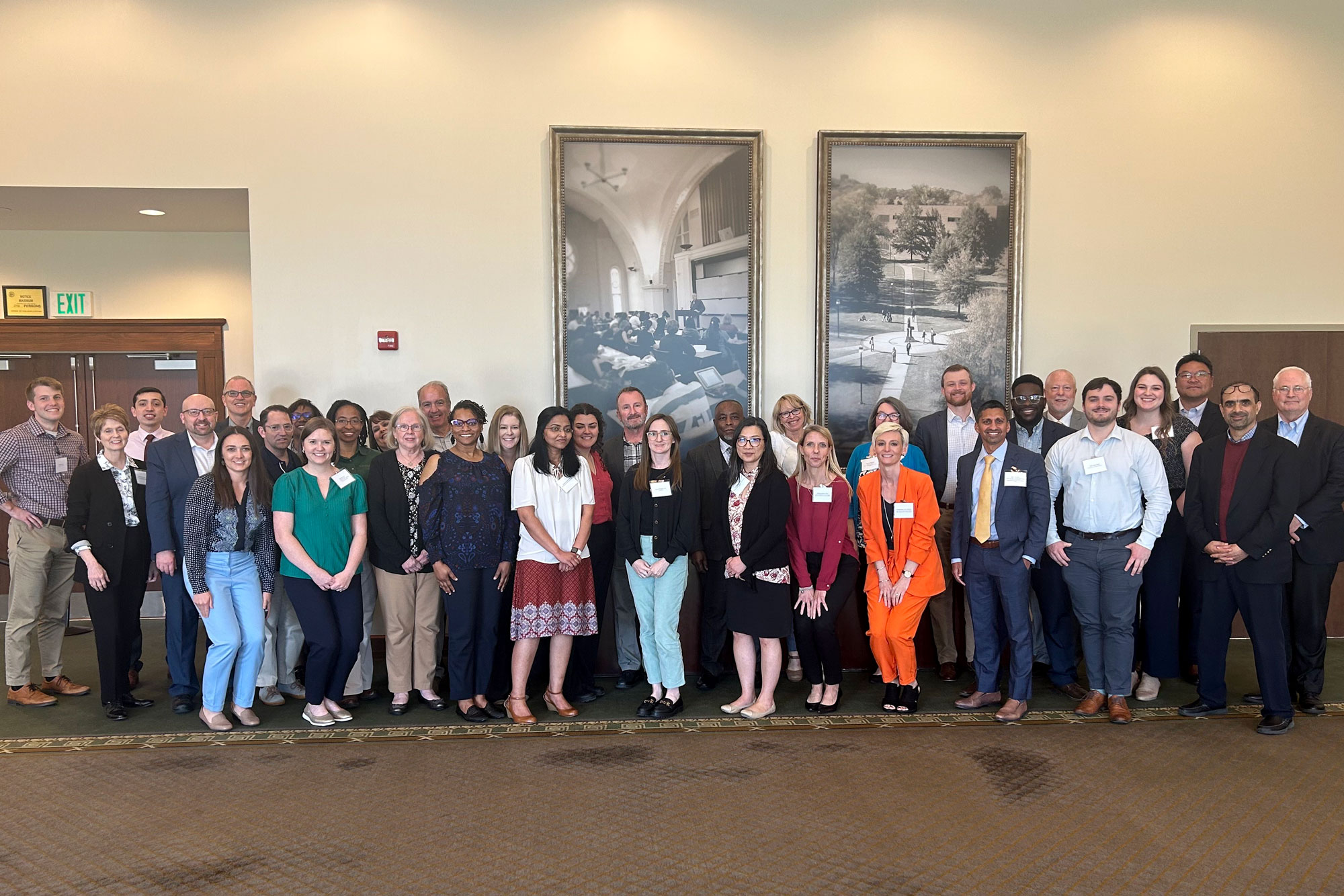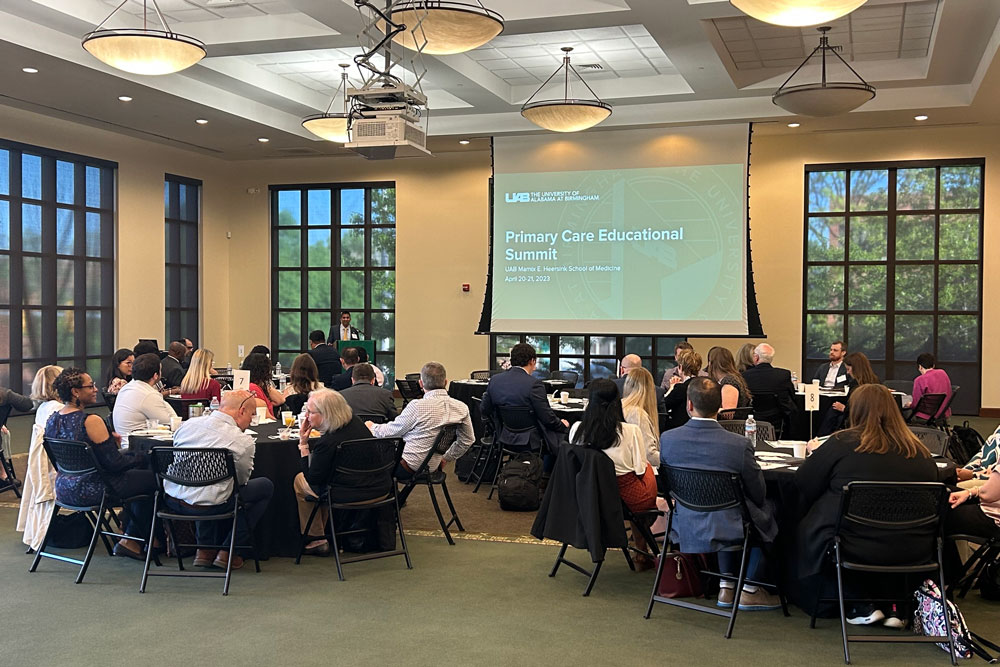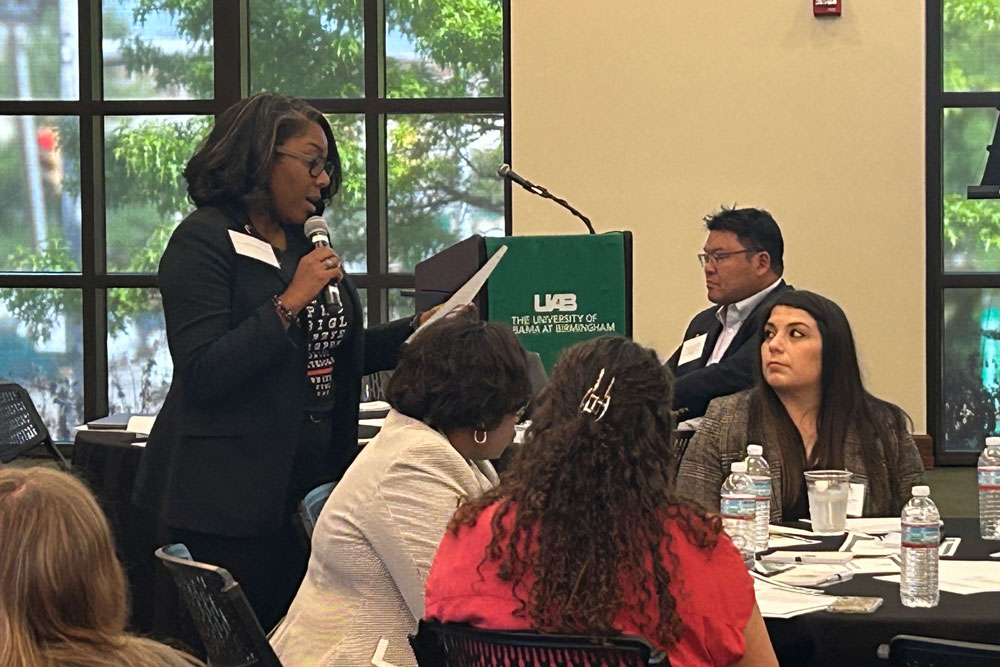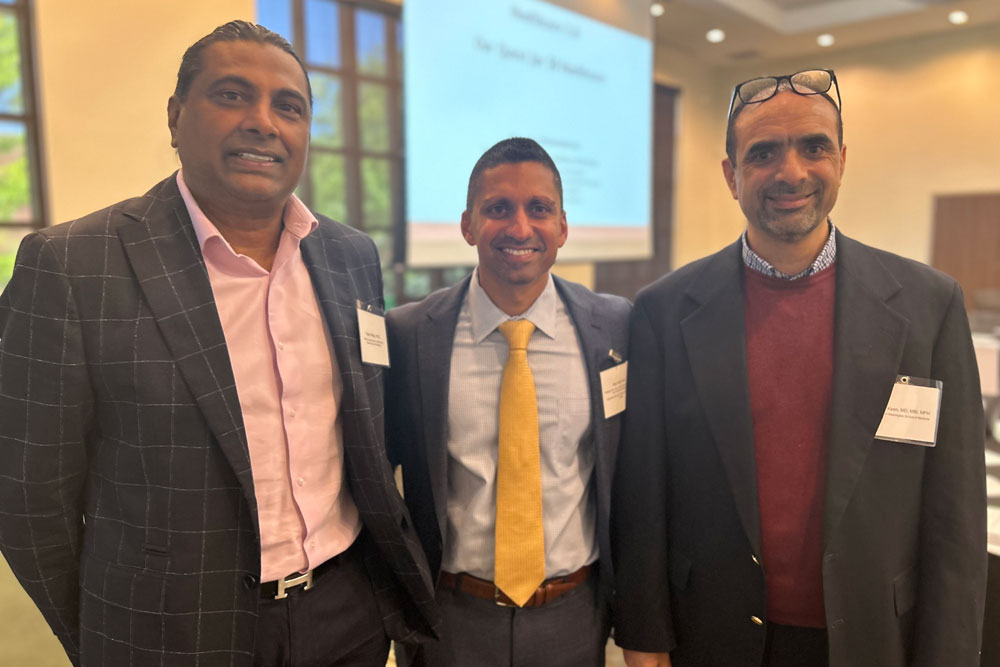 Attendees of the 2023 Primary Care Educational Summit at UAB
Attendees of the 2023 Primary Care Educational Summit at UAB
On Thursday and Friday, representatives from nine colleges and universities gathered at UAB for the first Primary Care Educational Summit, hosted by the UAB Department of Family and Community Medicine for recipients of a transformative HRSA grant.
The institutions present each received a Health Resources and Services Administration (HRSA) award in 2019-20 to build programs addressing critical shortages of primary care physicians in rural and underserved communities across the country.
In Alabama, for example, projections show that Alabama will need 612 new primary care physicians by 2030 just to maintain the status quo. As is, the state ranks among the worst in the U.S. in rates of diabetes, heart disease and other chronic diseases, as well as mental health care. Attendees from other states faced similar issues, as well as within unique situations within their own states and programs.
At UAB, the HRSA award – along with more than $10 million in supplemental funding in subsequent years – has been used to create the Comprehensive Urban Underserved and Rural Experience, or CU2RE, program in the Department of Family and Community Medicine. CU2RE includes pathway programming for undergraduate students interested in medicine, programming for current medical students and faculty development programming. All of it aims to recruit, train and retain excellent primary care physicians who are committed to serving in rural and underserved communities.
 Irfan Asif, M.D., department chair and associate dean for primary care and rural health, welcomes everyone to the summit.
Irfan Asif, M.D., department chair and associate dean for primary care and rural health, welcomes everyone to the summit.
Other institutions created similar programs. Institutions represented included the University of Arkansas for Medical Sciences, the University of Mississippi Medical Center, the University of Missouri – Kansas City School of Medicine, the Oklahoma State University Center for Health Sciences, the OU-TU School of Community Medicine and the University of Utah School of Medicine and the University of South Alabama College of Medicine.
Keynote speakers included Misbah Keen, M.D., MBI, MPH, executive vice chair of the Department of Family and Community Medicine at the University of Washington School of Medicine; Rubin Pillay, Ph.D., Chief Innovation Officer at the UAB Marnix E. Heersink School of Medicine; and Freddy Chen, M.D., MPH, Chief Health and Sciences Officer of the American Medical Association and a professor of family medicine at the University of Washington School of Medicine. Anthony Anyanwu, M.D., program officer with the Health Resources and Services Administration, was also in attendance and led a discussion session.
 Shyla K. Fields, MBA, gives a report of her table's discussion.
Shyla K. Fields, MBA, gives a report of her table's discussion.
Participants led and joined in six discussion sessions, each focused on different aspects of the programs they run. These included sessions on student recruitment, selection and retention, recruiting and engaging primary care preceptors, effectively teaching interprofessional education, tracking and disseminating program outcomes integrating current events into curricula, and developing sustainable funding. There was also a medical student panel featuring students participating in each program.
“This was such an important time for everyone to come together and learn from each other and from these exciting programs across the country,” said Irfan Asif, M.D., chair of the UAB Department of Family and Community Medicine, associate dean for primary care and rural health and principal investigator for the CU2RE grant.
 Rubin Pillay, Ph.D., Irfan Asif, M.D., and Misbah Keen, M.D., MBI, MPH
Rubin Pillay, Ph.D., Irfan Asif, M.D., and Misbah Keen, M.D., MBI, MPH
“We face similar opportunities and issues and it was so beneficial to hear what has been effective for other programs, what challenges they have faced, and how they have overcome those challenges as they launch and build their programs,” he said. “I really look forward to gathering with this group again.”
Much of the discussion focused on the essential benefits of primary care and family medicine, where providers care for patients throughout their lifespan, build relationships and focus on preventative care that can stop health problems before they start.
Programs like CU2RE and all of those represented at the summit help ensure that all communities can have access to that kind of care, which can in turn reduce rates of chronic disease, reduce the burden on hospital systems and improve quality of life overall. Each person in the room was investing in that future.